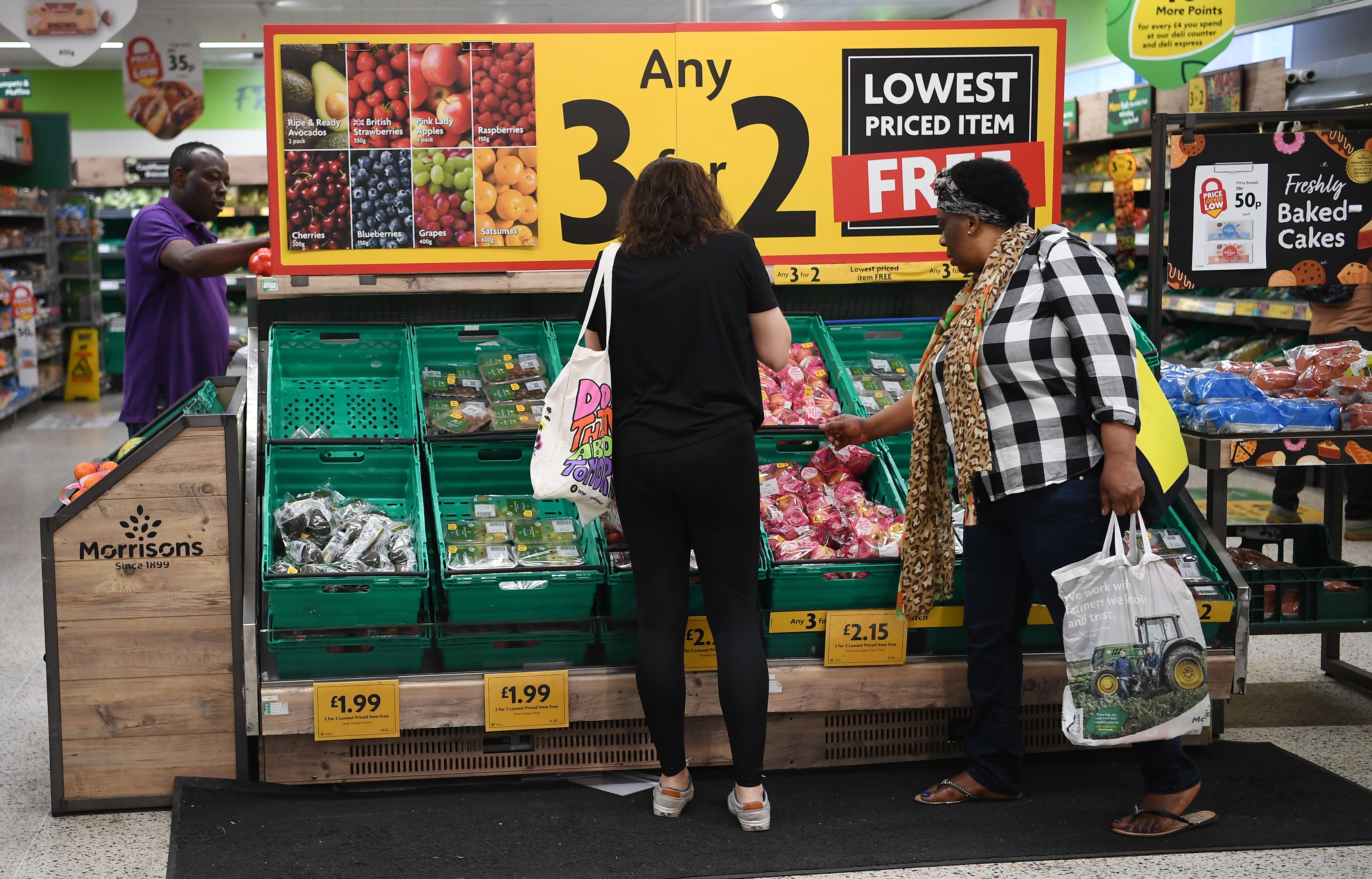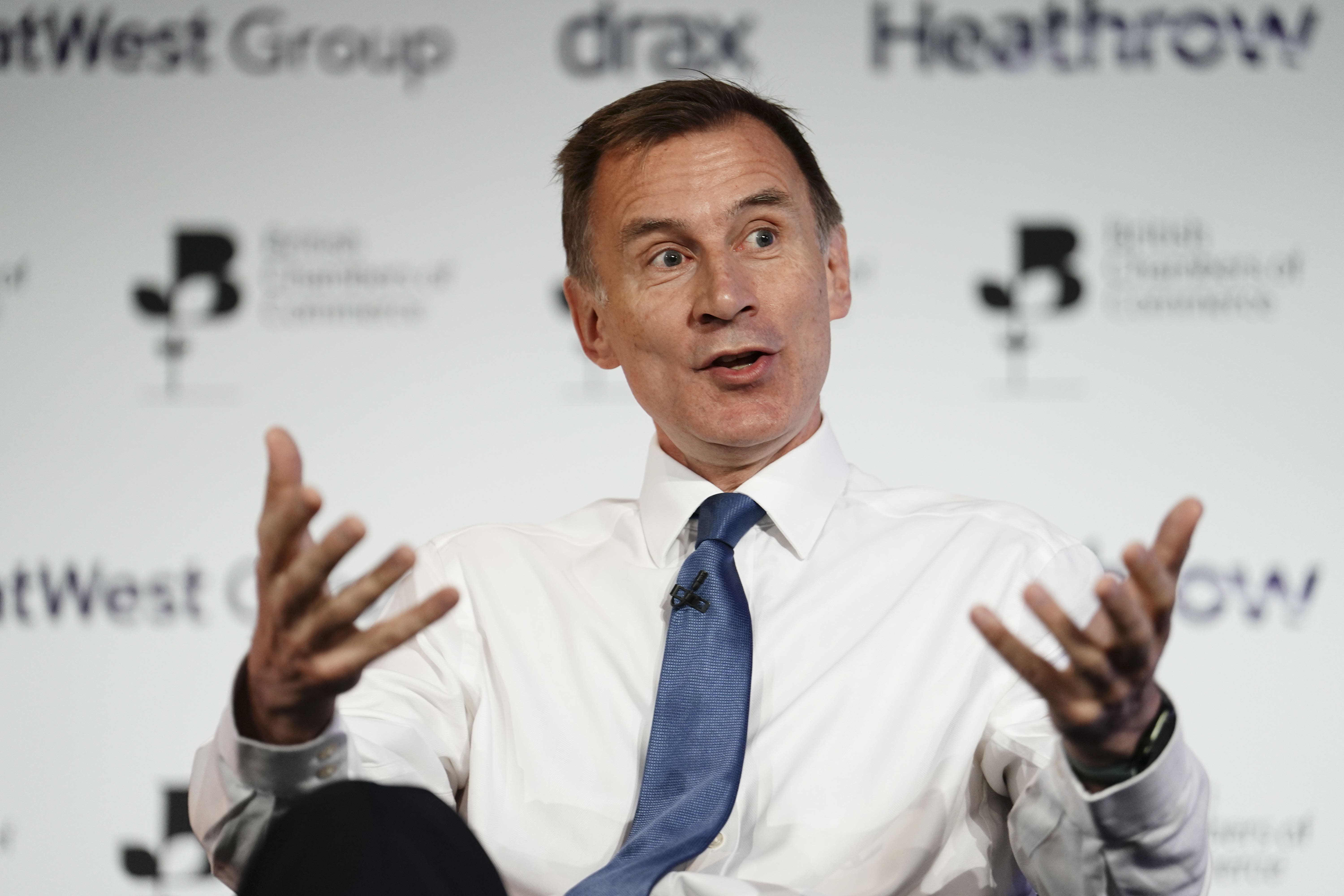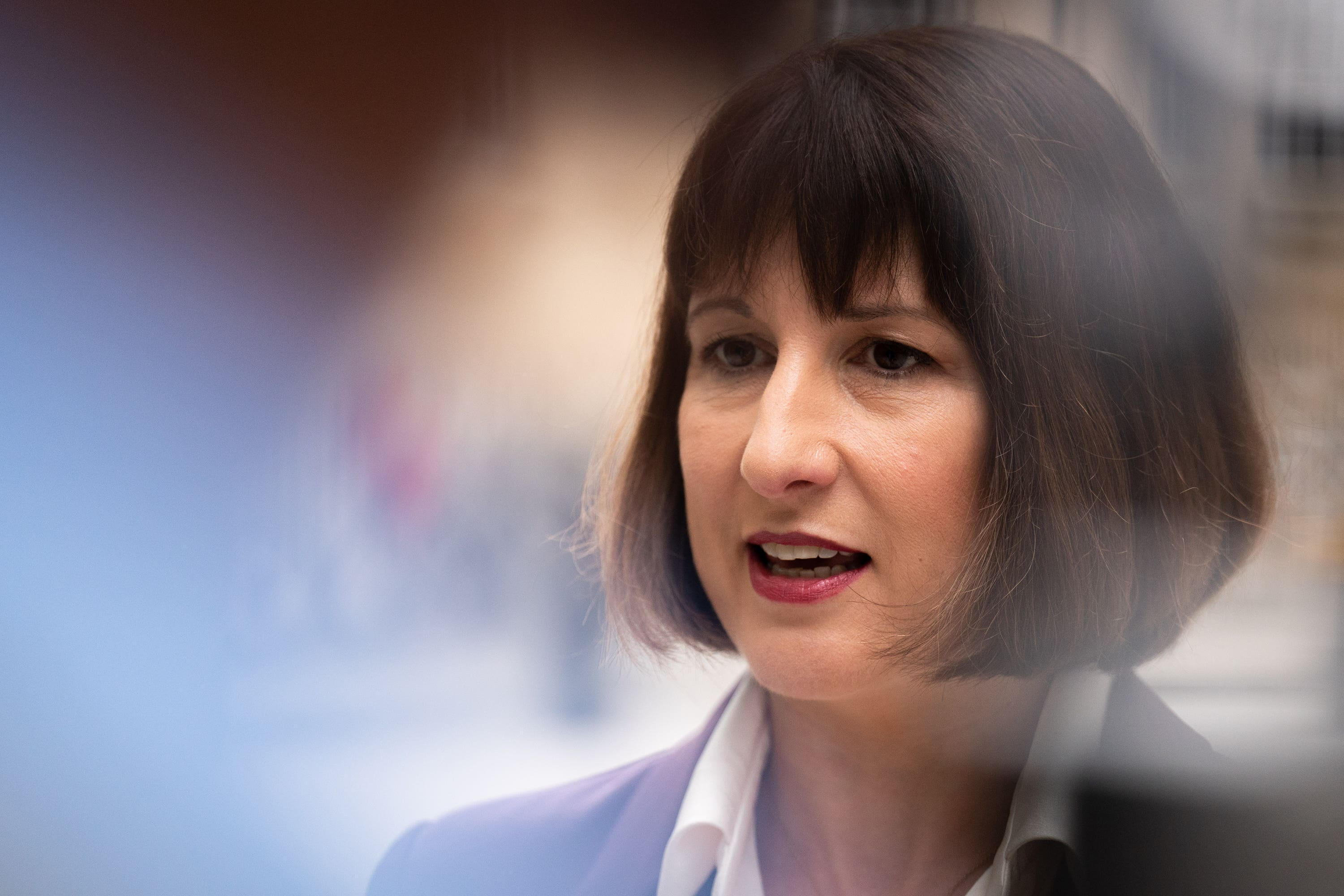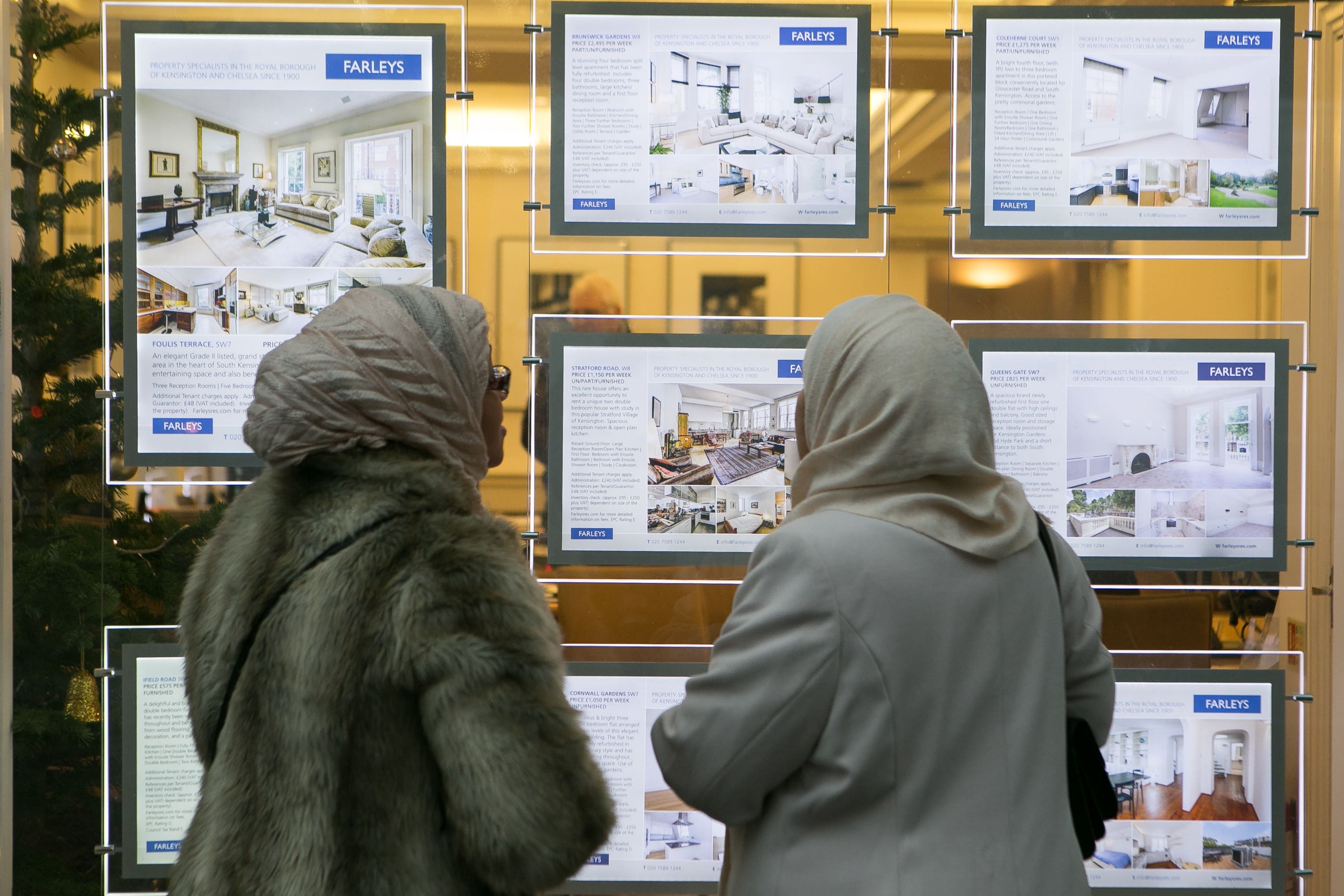UK inflation falls as prices rise less than expected
‘Unambiguously good news’: inflation drops to 7.9% – but food price hikes ease only slightly
Your support helps us to tell the story
From reproductive rights to climate change to Big Tech, The Independent is on the ground when the story is developing. Whether it's investigating the financials of Elon Musk's pro-Trump PAC or producing our latest documentary, 'The A Word', which shines a light on the American women fighting for reproductive rights, we know how important it is to parse out the facts from the messaging.
At such a critical moment in US history, we need reporters on the ground. Your donation allows us to keep sending journalists to speak to both sides of the story.
The Independent is trusted by Americans across the entire political spectrum. And unlike many other quality news outlets, we choose not to lock Americans out of our reporting and analysis with paywalls. We believe quality journalism should be available to everyone, paid for by those who can afford it.
Your support makes all the difference.The rate of the UK’s price rises has fallen from 8.7 per cent to 7.9 per cent, the latest official figures showed, offering welcome relief to families struggling with the cost of living crisis.
The consumer price index measure of inflation up until June showed a bigger-than-expected fall, as the Office for National Statistics (ONS) revealed that the rate of increase had “slowed substantially” to its lowest annual level since March 2022.
The drop came as good news to Rishi Sunak’s government and the Bank of England, under pressure to tame stubbornly persistent inflation and City forecasts predicting a fall to 8.2 per cent.
While core inflation has dropped back after May’s 30-year high, it is still well above the Bank’s official 2 per cent target – with further interest rate hikes expected in the months ahead.
And, in a speech on Wednesday night, Bank of England deputy governor Dave Ramsden said June’s inflation figure was “much too high”. Mr Ramsden said if there is evidence of “more persistent” inflation ahead of the Bank’s August meeting, further interest rate rises will be needed.
But the bigger-than-expected slowdown in inflation fuelled hopes for homeowners that the painful upward pressure on mortgage rates could begin to ease, as brokers pleaded with the Bank to “exercise restraint”.
The government said inflation figures were finally “moving in the right direction”. Chancellor Jeremy Hunt said that “we aren’t complacent and know that high prices are still a huge worry for families and businesses”.
The ONS’s chief economist Grant Fitzner noted that food inflation had eased only slightly, with the fall mainly driven by price drops for petrol and diesel.
Inflation at the supermarket pared back to 17.3 per cent from 18.7 per cent in May, but items on the shelf remain painfully expensive for hard-pressed shoppers. “Food price inflation eased slightly this month, although it remains at very high levels,” said Mr Fitzner.

The British Retail Consortium (BRC) said supply chains remained “volatile”, and warned that Vladimir Putin’s decision to pull out of the Ukraine grain supply agreement could push up “staple” food prices again in future.
Helen Dickinson, the BRC’s chief executive, said prices for cheese, fruit and fish all dropped as lower commodity and energy costs filtered through to customers.
Karen Betts, chief executive of the Food and Drink Federation, said the latest figures were “encouraging”, adding: “We hope the rate of food and drink price inflation will continue to fall steadily over the coming months.”
But she warned that food and drink manufacturers’ costs were one-third higher than they were three years ago. “Russia’s decision to pull out of the Black Sea grain deal is unhelpful too and brings new risks to global grain supplies,” the food chief added.

Inflation in the UK remains the highest in the G7 group of rich economies, and some financial experts have predicted that the Bank of England could increase the base rate beyond 6.5 per cent by early next year – pushing up mortgage rates and pressure on homeowners.
Shadow chancellor Rachel Reeves said that Britain’s inflation being higher than international peers was a “hallmark of Tory economic failure”, and that families know prices are “still going up at staggering rates and that they’re bearing the brunt of those costs”.
The Lib Dems’ Treasury spokesperson Sarah Olney said the figures would be “cold comfort to countless families worried about their mortgage going up”.
The latest figures boost the chances that the Bank of England – considering a 0.5 per cent rise in the base rate next month – will opt for a smaller rise of 0.25 per cent.

Money Saving Expert founder Martin Lewis said the inflation figures could be a “strong signal” of some “good news” for mortgage holders by taking pressure off interest rate rises. And Mohamed El-Erian, chief economic advisor to Allianz, said it was undoubtedly “good news for those looking for mortgages”.
Despite the optimism, the Moneyfacts website said the average two-year fixed-rate homeowner mortgage rate on the market on Wednesday is 6.81 per cent – up from 6.78 per cent on Tuesday. The average five-year fix is 6.33 per cent, up from 6.30 per cent the previous day.
Andrew Montlake of mortgage brokers Coreco said he expected “a slight reprieve … with the prospect that we are now closer to the top of the interest cycle than thought a few weeks ago”. He added: “The Bank of England must now exercise some restraint.”
Mark Harris of the SPF Private Clients mortgage broker said some lenders may start to reduce pricing if inflation continues to fall and swap rates – which lenders use to price their mortgages – begin to ease.
“There is a strong argument for the Bank of England to pause interest rate rises for now, giving the market time to settle down and adjust,” he said.
UK house price inflation in May this year was running at about one-seventh of the levels seen at the end of last summer – around £7,000 below a recent peak seen in September 2022, according to the official figures.

The Resolution Foundation said the “chunky” inflation fall was “unambiguously good news” and had ended the UK’s 18-month period of falling real wages.
Research director James Smith said: “The scale of the fall will ease pressure on mortgages and wages, with the Bank of England less likely to keep interest rates higher for longer, and Britain’s latest 18-month pay squeeze is coming to an end.”
However, the Resolution Foundation noted that the UK still has the highest inflation rate in the G7 and the third highest among OECD advanced countries. “After today [Britain] merely looks bad rather than a basket case,” said Mr Smith.
As much as £113bn could have been wiped off the value of the nation’s savings over the past year in real terms because of persistently high inflation, according to analysis released on Wednesday by AJ Bell. “Savers are still being pummelled by high inflation and lower returns on savings,” said the investment platform.
The Joseph Rowntree Foundation (JRF) also pointed out that Britain was “still in the belly” of a food price crisis – saying 5.7 million families on low incomes were forced to eat less or skip meals.
Calling for an increase in universal credit, JRF’s chief economist Alfie Stirling said: “The crisis is now entering a dangerous new phase. With 2.3 million low-income families continuing to take out loans to pay for essential bills, rising interest rates risk a second wave of material hardship even as inflation continues to fall.”






Join our commenting forum
Join thought-provoking conversations, follow other Independent readers and see their replies
Comments